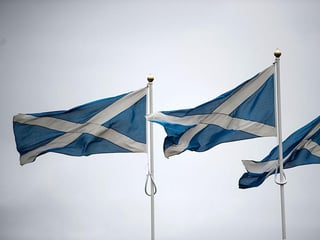UK economy exceeds expectations over summer


Gross domestic product (GDP) rose by 16 per cent between July and September, the fastest quarterly increase since records began in 1955. The new figure is ahead of the Office for National Statistics' initial estimate of a 15.5 per cent rise in GDP during the third quarter of the year.
But despite record growth, the third-quarter bounceback was not enough to make up the ground that the UK had lost in the preceding three months. Between April and June, GDP dropped by 18.8 per cent, revised down from earlier estimates of 19.8 per cent, as the effects of the Covid-19 pandemic hit the economy.
Advertisement
Hide AdAdvertisement
Hide AdGDP also dropped by 3 per cent in the first quarter, up from previous estimates of 2.5 per cent. Taken together, it means that the level of UK GDP was still 8.6 per cent lower in the third quarter than it had been at the end of 2019, before the pandemic.
Howard Archer, chief economic advisor to the EY Item Club, said: "The economy saw a bigger bounceback in the third quarter than previously reported as it benefited from reduced lockdown restrictions releasing pent-up demand.
"It also gained some help from stimulus measures, including the temporary raising of the stamp duty threshold for house purchases, the VAT cut for the hospitality sector from mid-July, and the 'Eat Out to Help Out' scheme in August."
The UK has also proved to be the worst-hit country among some of the world's biggest economies. When compared to other Group of Seven (G7) members, the UK economy was twice as badly hit.
The UK's economy fell by 21.2 per cent in the second quarter compared to the end of 2019. Only France at 18.9 per cent and Italy at 17.8 per cent came close to the hit that the UK took during that quarter.
The differences between countries could be a reflection of how the virus spread, and how the lockdowns were implemented in the countries in question, the ONS said. It also said that some impacts may be measured differently in different countries.
A message from the Editor:
Thank you for reading this article. We're more reliant on your support than ever as the shift in consumer habits brought about by coronavirus impacts our advertisers.
If you haven't already, please consider supporting our trusted, fact-checked journalism by taking out a digital subscription.
Comments
Want to join the conversation? Please or to comment on this article.
